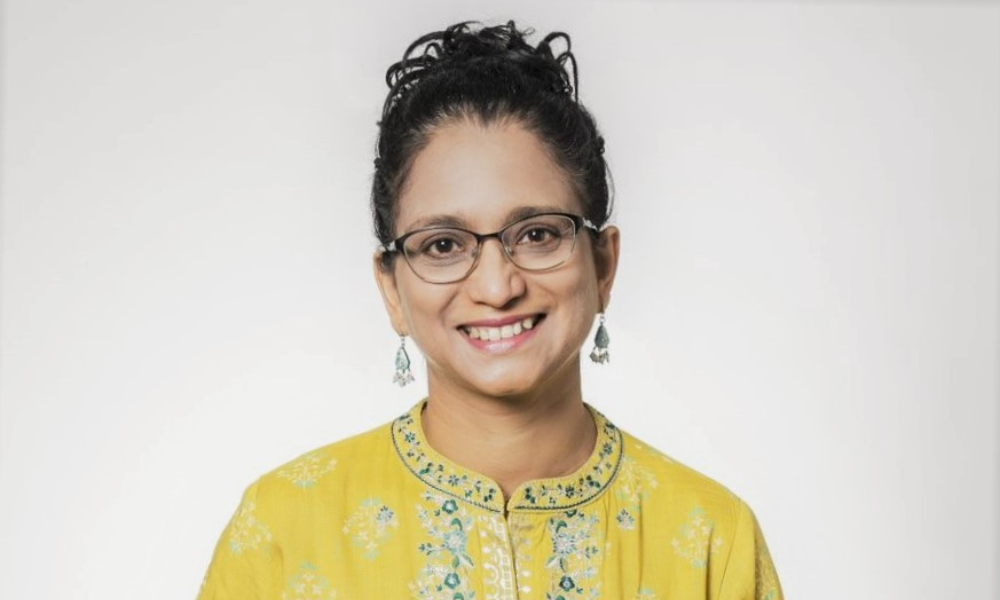
'Diversity and inclusion is not just good human rights, it's also good economics,' says head of culture, partnering & performance

HR leader Anne Das Gupta truly knows the value of DE&I. After emigrating to Australia as a graduate from India back in 1992, she found doors only opened for her workwise when she decided to anglicize her name.
Now her employer of more than two years, Sydney Water, is launching a new data gathering system to enable people to share and celebrate details of their diversity, whether that relates to disability, neurodiversity, multiculturalism or racial qualities.
It’s a move Das Gupta, head of culture, partnering & performance, hopes will lead to greater diversity in leadership roles.
“If we want to represent the community we serve, we’re aware that the community wants to know that we understand them because we've got diversity of thought,” she says.
“For me a particular focus is looking at the multilingual, multicultural and multiracial diversity in leadership roles, to establish whether the senior leadership team represents the community we serve. That’s been approved as a company performance target by the executives and with the introduction of the new system upgrade, people will be able to share diversity information.”
Das Gupta understands from personal experience that not only is this the right thing to do but it also makes commercial sense.
“One of our operating philosophies at Sydney Water is that diversity and inclusion is not just good human rights, it's also good economics.
“I'm pretty certain we have a lot more diversity than we are reporting on. People might have such interesting backgrounds but we've never asked them. No one is forced to disclose anything they don't feel safe disclosing and for additional safety that data is only visible to a handful of people in the organization. The manager will have no access to it and we will report it only at a collective level.”
The company’s focus on DE&I hasn’t just come from Das Gupta, she stresses. It’s inbuilt in the organisation’s strategy.
“Our CEO absolutely believes in this work. This is where sponsorship is so important. Our CEO and the executive team actively sit on various diversity councils.
“We are following the Reconciliation Action Plan which promotes reconciliation by building relationships, respect and trust between wider Australian community and Aboriginal and Torres Strait Islander peoples. Our inspiration is to get to stage four, which involves meeting different requirements of Reconciliation Australia, such as the number of indigenous people in the workforce or the amount of procurements spent with indigenous businesses. I'm really proud saying my CEO, who is French and Caucasian, is so passionate about supporting reconciliation efforts for the First Nations people - he is truly inspirational.”
For Sydney Water, diversity and inclusion help form a strong sense of belonging, says Das Gupta, who is on HRD’s Global 100 for HR list.
“We annually measure our inclusion or diversity index. We also measure whether people have a sense of belonging through our annual surveys.
“It’s taken very seriously and reported all the way to the board and in our annual report which is visible to all, including our shareholder the New South Wales Treasury.”
Das Gupta arrived in Australia in 1992 as a university graduate from India, having studied psychology, biochemistry and physiology.
“I was looking for work for two years and it took me that long to realise that all I had to do was change my name. It’s quite funny how the doors opened because, all of a sudden, the biases were lifted. That's where I started to take an interest in diversity, equity.”
A recent experiment by her daughter in submitting job applications in the legal profession using an alternative anglicized name has revealed that biases still exist, despite the years since Das Gupta’s initial experiences.
“At a global level, we have a fair way to go in terms of diversity, equity and inclusion. The role of HR is to be a broker of excellence, bringing parts of the business and the stakeholders together, to balance people and profits.
“All of us come with a wonderful set of advantages and disadvantages, and so for me, that's what HR is about - lifting the lives of the people around you to create prosperity for all.”
Initially working in financial services, Das Gupta decided to move into HR after realising “there is a lot more we need to do in helping people to bring out the best in themselves,” she says.
The switch in career involved further study in the field of organisational behaviour and accreditation in a number of psychometric tools, with additional study at the Australian Graduate School of Management, and the McQuarrie Graduate School of Management in business studies. It’s enabled her to “understand how to be a business leader first, and an HR leader next” — something that’s been invaluable in her career.
Das Gupta’s advice with regards to DE&I for other HR leaders who don't have the experiences she’s encountered is to be willing to listen.
“I would say find somebody who doesn't look like you, who doesn’t speak like you, who doesn’t think like you, and just listen.
“Are you willing to listen, leave your ego aside and see what is the work that actually needs to be done because the world is not an equal place?”